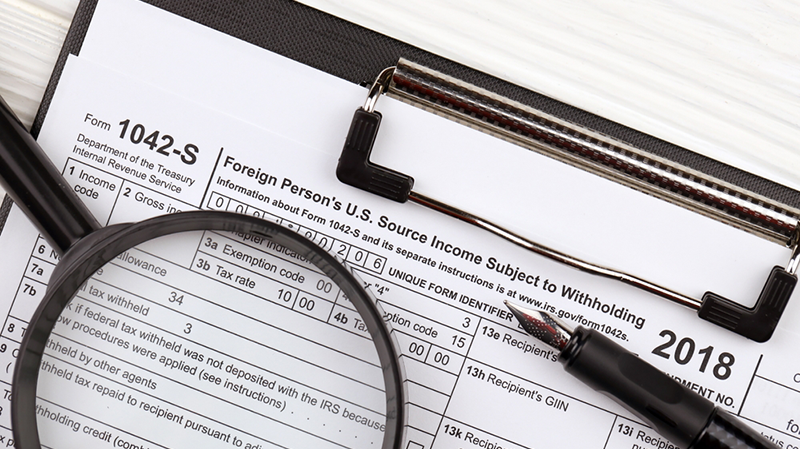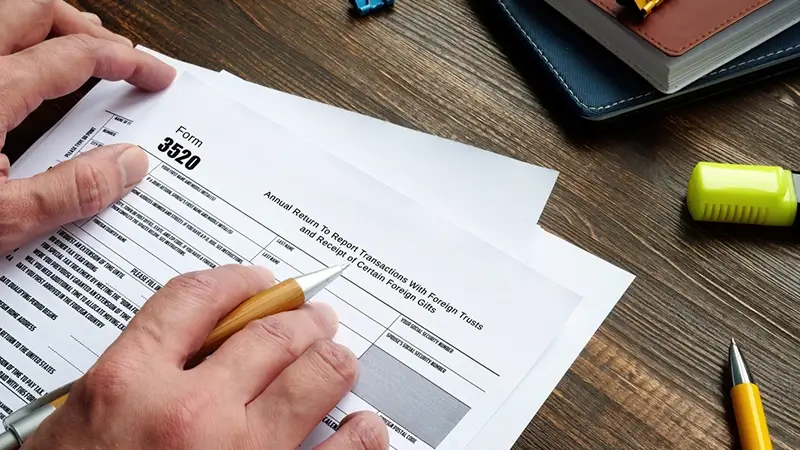Form 1042-S: Foreign Person's U.S Source Income Subject to Withholding
When conducting business across borders or managing foreign investments in the United States, it’s crucial to understand the tax implications of...
Individuals who are citizens or residents of the United States, as well as executors handling the estates of deceased U.S. individuals, are required to file Form 3520 to report various transactions involving foreign trusts. This includes disclosing ownership of foreign trusts following the regulations outlined in sections Internal Revenue Code 671 through 679. Additionally, it is necessary to report the receipt of substantial gifts or bequests from specific foreign individuals.
It is important to note that a separate Form 3520 must be filed for each transaction involving a foreign trust.
Typically, a U.S. individual's Form 3520 is expected to be submitted by the 15th day of the 4th month after the conclusion of their tax year for income tax purposes. However, if a U.S. individual is granted an extension to file their income tax return, they should ensure that Form 3520 is filed no later than the 15th day of the 10th month following the end of their tax year. It's important to note that this deadline may vary and is not linked to the due date of the individual's income tax return.
Form 3520, also referred to as the Annual Return to Report Transactions with Foreign Trusts and Receipt of Certain Foreign Gifts, is a requirement for U.S. taxpayers who receive or may receive income from a trust-based outside the United States or a foreign inheritance. The need for disclosure depends on various factors, including the asset size. Unlike a typical tax return, Form 3520 serves as an information return, and there is no requirement to make any payments to the IRS when submitting it.
Form 3520-A is required by the government from individuals who oversee foreign grantor trusts that have identified U.S. taxpayer beneficiaries. Form 3520-A is somewhat less frequently required than Form 3520.
The requirements and contents of both forms can be quite complex, so it is highly recommended to seek assistance from professionals who have extensive experience in dealing with the IRS. Their expertise will ensure that you navigate the process smoothly and accurately.
If any of the following situations apply to you, it is necessary to file Form 3520:
You are a U.S. person who, during the current tax year, received either:
More than $100,000 from a nonresident alien individual or a foreign estate (including foreign persons related to that nonresident alien individual or foreign estate) that you treated as gifts or bequests; or
More than the section 6039F threshold amount from foreign corporations or foreign partnerships (including foreign persons related to such foreign corporations or foreign partnerships) that you treated as gifts. The threshold amount is available at IRS.gov/Newsroom/Inflation-Adjusted-Tax-Items-by-Tax-Year. Select the applicable tax year news release, then click on the Rev. Proc. link and search for section 6039F to see the threshold amount under Notice of Large Gifts Received from Foreign Persons.
A penalty applies if this form is not timely filed or if the information is incomplete or incorrect. Generally, the initial penalty is equal to the greater of $10,000 or the following (as applicable).
| Related posts |
At H&CO, our experienced team of tax professionals understands the complexities of income tax preparation and is dedicated to guiding you through the process. With offices in Miami, Coral Gables, Aventura, Tampa, and Fort Lauderdale, our CPAs are readily available to assist you with all your income tax planning and tax preparation needs. To learn more about our accounting firm services take a look at our individual tax services, business tax services, international tax services, expatriate tax services, SAP Business One, entity management, human capital, and audit and assurance services.

When conducting business across borders or managing foreign investments in the United States, it’s crucial to understand the tax implications of...

Are you a foreign investor or multinational looking to understand US inbound tax planning compliance? Tackling the US tax system requires clarity on...

Navigating US tax preparation for Americans who invest internationally, have overseas investments, and US businesses operating internationally can be...
